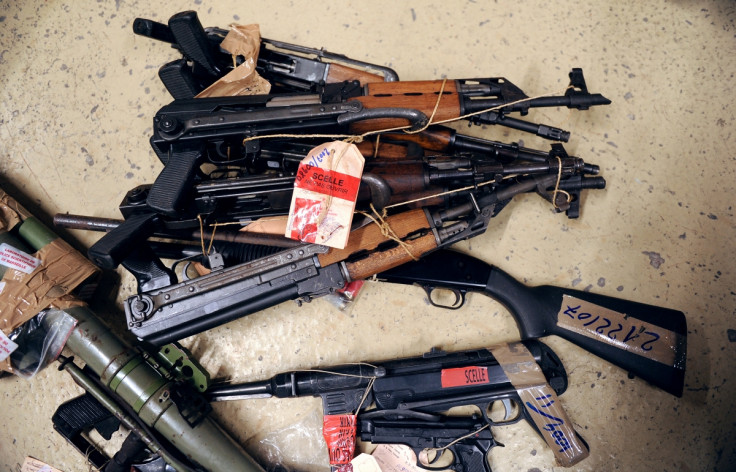Experts link 50 gun crimes across Europe in new study

Governments need to improve the way they gather and share information about illegal firearms in order to combat gun crime, a UK-led report has concluded.
The 15-month Effect Project found that inconsistencies in the ways European countries register firearms offences means that gun crime was difficult to monitor.
It found that legal loopholes could be exploited by criminals to acquire firearms, and recommends the formation of a centralised "firearms focal point" where information on firearms and their ballistic material can be stored and shared by European countries.
Experts from Coventry University and UK ballistics consultancy Arquebus took part in the study, which will be presented at the EU in Brussels on Wednesday, 25 May.
It comes amid increasing concern about the availability of illegal firearms in Europe, in face of the threat from terrorist groups and organised crime gangs. Last year, Islamist militants armed with automatic weapons launched deadly terror attacks in the French capital Paris in January and November.
In April, members of an organised crime gang in Kent were convicted after being found in possession of a stash of automatic weapons purchased from the same Slovakian store as the Paris attackers, who targetted Parisian satirical magazine Charlie Hebdo in January, 2015. The 22 Kalashnikov-style assault rifles and nine machine guns were described by police from the National Crime Agency as "mass casualty weapons". They had been sold legally and reactivated by hammering out a metal pin placed in the barrels.
In the wake of the attacks experts called for a joined-up European strategy to combat the spread of illegal firearms, some of which are decommissioned weapons reactivated to fire live rounds, and others smuggled into the EU from parts of the continent including the Balkans and Ukraine.
The report identifies inconsistencies across Europe in logging gun crime, and difficulties developing and implementing new legislation. It found that instead of focussing on the illegal firearms most commonly used in gun crime, "firearms legislation typically focusses on the control of legally held firearms, and that this is most often amended in response to gun enabled crime."
It found that instead of targeting the availability of firearms and supply networks, "investigations are reactive and focus on identifying and apprehending the perpetrator".
The report recommends that the status of what constitutes an antique weapon be reviewed, with many bought from specialist retailers and recommissioned. It also advises common standards be adopted across member states to ensure blanks-firing weapons cannot be converted to fire live rounds.
As part of the study, experts from Arquebus examined 1,000 cartridge cases and found links to 50 shootings across Europe.
"In our examination of cartridge cases in Serbia, using Ballistic analysis systems not currently available in the country, we were able to identify connections relating to around 50 shootings, a considerable number of which were previously unknown," said company director Matt Lewis in a statement. "We also compared the results against a number of ballistic databases in other countries and identified potential links with the former Yugoslav Republic of Macedonia, Kosovo and Sweden.
"Firearms are used by criminals on multiple occasions both internally within a country and across international borders," he said.
"Understanding more about where they originate from, how they move within countries and cross-border, and have been used before will enable the UK to work with other countries to help tackle the problem at source, rather than at our border."
Among the report's key recommendations are that "in all EU member states one national central point shall be established to gather, analyse and disseminate data and intelligence information regarding GEC [gun enabled crime]".
Dr. Anna Alvazzi del Frate, Director of Programmes at the Swiss-based arms trafficking think-tank the Small Arms Survey, stressed the urgent need for more data-sharing on gun crime between EU states.
"More standardised and systematic data-sharing on crime, guns and firearms-related crime – including non-lethal gun violence – in Europe would allow for a better understanding of the main policy gaps. For instance, the use of converted and reactivated firearms by criminals and in the 2015 terror attacks – some of which originated from within the EU – raises different sets of challenges than the trafficking of arms from south-eastern Europe," she told IBTimes UK.
"Monitoring these trends more closely would lead to the earlier detection of the sources of illicit arms and to more timely policy-making. It would also contribute to EU member states' efforts to meet the targets set under the United Nations' Sustainable Development Goals."
The report will be presented to European Parliament members, police chiefs, and international law enforcement organisations Interpol and Europol.
© Copyright IBTimes 2025. All rights reserved.




















